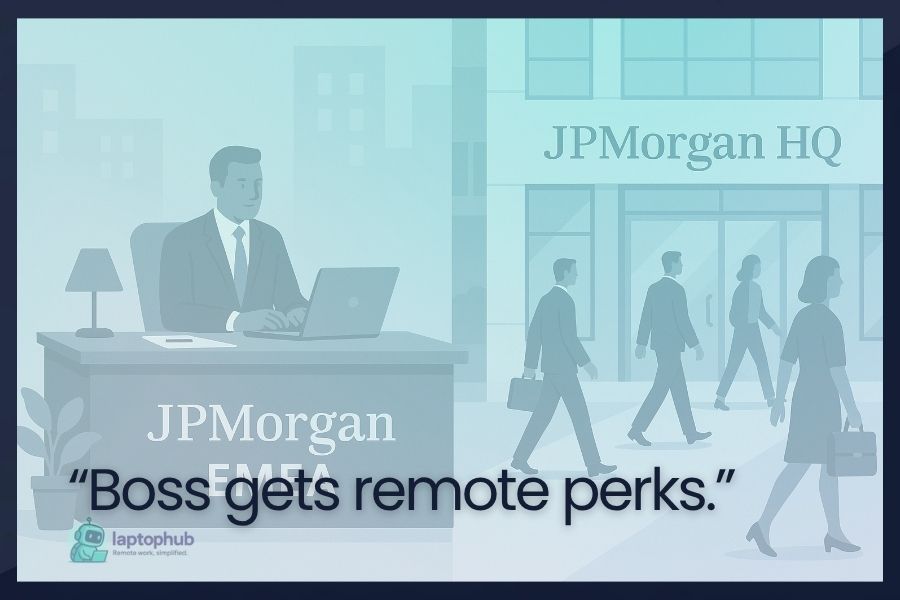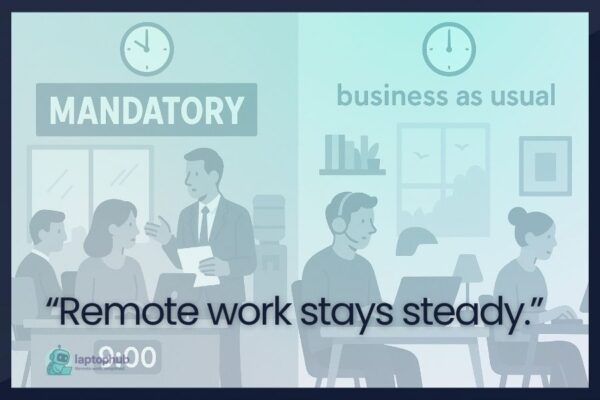JPMorgan Chase CEO Jamie Dimon has been vocal in his support of full-time office work, citing the need for collaboration and mentorship. Yet, in a striking contradiction, Filippo Gori who oversees European, Middle Eastern, and African operations—was permitted to relocate to New York. From there, he supervises EMEA functions while working mostly remotely
A MarketWatch article reports that this policy inconsistency is not unique to JPMorgan—companies like Starbucks and Victoria’s Secret also grant remote arrangements to senior leaders while enforcing rigid office mandates for others
Mixed messages cause employee frustration
Employees report that the executive exception to the return-to-office policy has fostered resentment and morale issues. According to a Checkr survey cited by MarketWatch, more bosses than staff now prefer remote work, further exposing tension between corporate messaging and leadership behavior.
Debate intensifies on hybrid equality
This situation has reignited discussion around fairness in hybrid policy application. Industry experts argue that inconsistent enforcement—where leaders break the rules they set—can undermine trust and diminish the supposed benefits of in-office culture.
What this means for future remote policies
As remote and hybrid models continue evolving, equitable application will be vital. Employees expect consistency without it, policies risk backfiring, eroding morale, and increasing turnover. Firms are under pressure to build flexible but transparent frameworks that treat all roles executive or entry level with the same standards.
Read our editorial guidelines to learn how we report news on LaptopHub.





